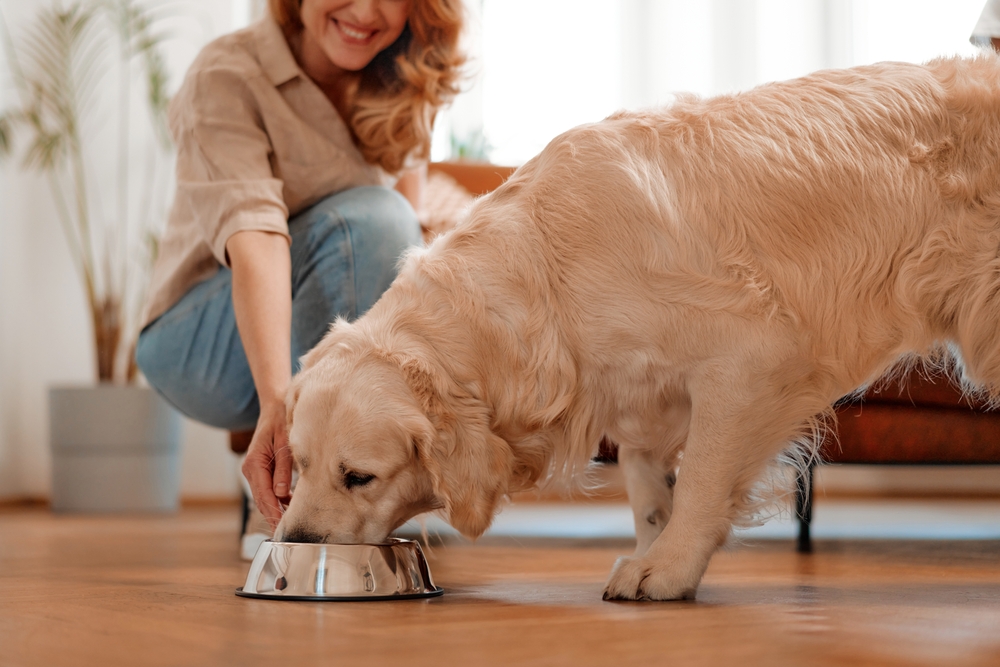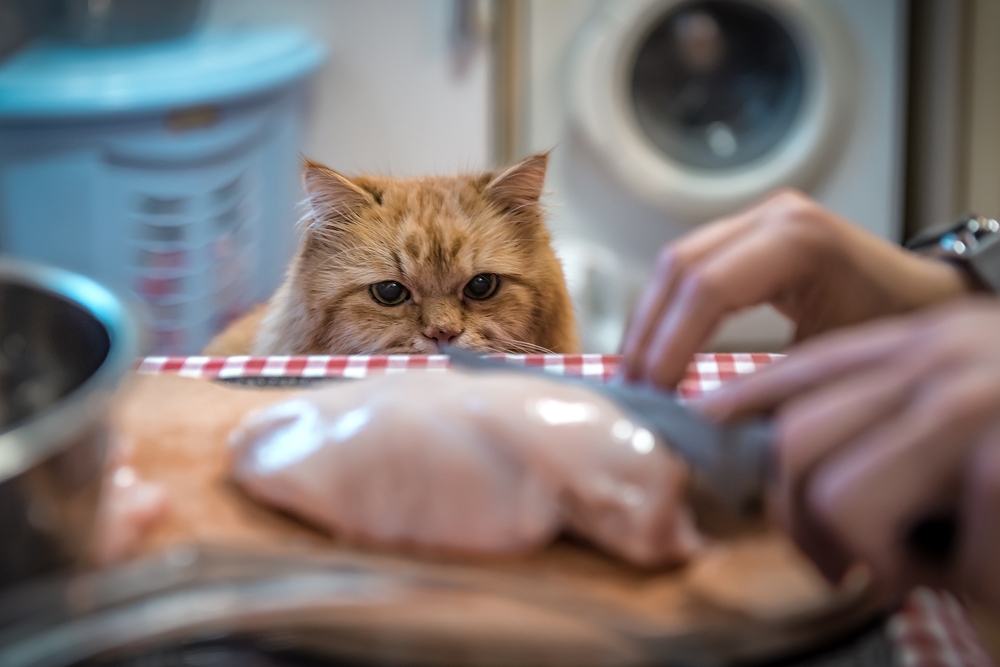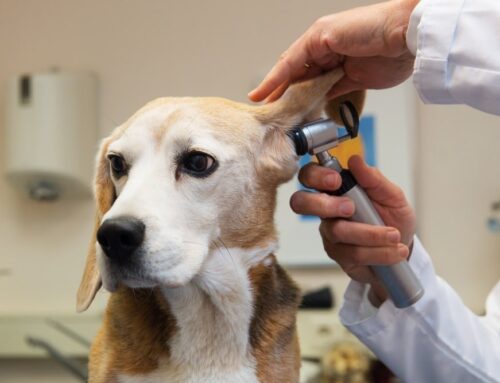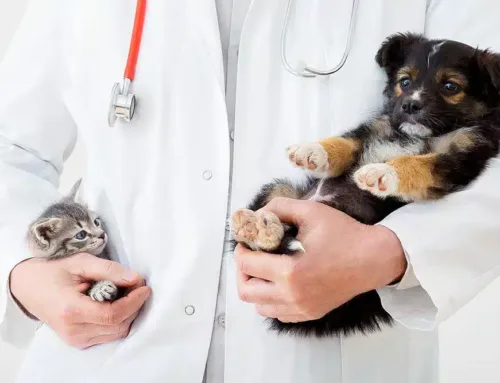When walking through the pet food aisles at the store, you can easily be overwhelmed with options. Faced with deciding between holistic or organic ingredients and human-grade or ancestral diets, you may opt to make your pet’s food at home. But, is that a wise decision? Our Emerald Animal Hospital team covers the pros and cons of making your pet’s food at home by answering common questions in this comprehensive guide about homemade pet diets.
Question: How would my pet benefit from a homemade diet?
Answer: Because you have prepared your pet’s homemade food yourself, you know it is wholesome. Homemade pet food offers several potential benefits, including:
- Transparency — You know exactly what goes into your pet’s food, and can ensure that you choose high-quality ingredients.
- Freshness — Homemade pet food can be made using fresh, whole ingredients, providing optimal nutrition.
- Control over ingredients — You can avoid artificial additives, preservatives, and fillers commonly included in commercial pet foods.
- Tailored nutrition — Homemade diets can be customized to meet your pet’s specific nutritional requirements, taking into account factors such as age, breed, activity level, and any medical conditions they may have.
- Allergen management — If your pet has food allergies or sensitivities, such as chicken or beef, a homemade diet allows you to carefully control what is included and leave out potential allergens.
Q: Can I feed my pet the same food I eat?
A: Feeding your pet the same food you eat can be risky and is generally not recommended. While some human foods are safe for pets in small quantities, many others can be harmful or toxic. Additionally, pets have different nutritional requirements than people, so your diet may not provide all the essential nutrients that your pet needs to stay healthy. Other potential problems your pet may experience if fed human foods include:
- Digestive issues — Pets can have trouble digesting certain foods common in human diets, leading to gastrointestinal (GI) upset, diarrhea, or other digestive issues. Foods high in fat, spices, or additives are particularly problematic for pets.
- Obesity and weight management — Human foods tend to be higher in calories and fat than pet foods, which can contribute to obesity and weight management issues. Obesity is a significant health concern for pets and can lead to a variety of health problems, including diabetes, arthritis, and heart disease.
- Behavioral issues — Feeding pets human food can also lead to behavioral issues such as begging, food aggression, and selective eating. Pets may become accustomed to the taste of human food and refuse to eat their regular pet food, leading to nutritional deficiencies.
Q: Is homemade pet food cost-effective?
A: Homemade pet foods’ costs depend on various factors, including the ingredients you use and your pet’s dietary requirements. While some homemade recipes may be more affordable than premium commercial pet foods, others may require costly ingredients or supplements to ensure nutritional balance. Consider your budget and your pet’s needs when determining homemade pet foods’ cost-effectiveness.
Q: What tools can I use to formulate my pet’s homemade diet?
A: Formulating your pet’s homemade diet requires careful consideration of their nutritional needs to ensure your furry pal receives all the essential nutrients for optimal health. Consider using these tools and resources to formulate a balanced homemade diet for your pet:
- Veterinary nutritionist — Consult with a board-certified veterinary nutritionist who can tailor a diet plan specifically to your pet’s individual needs, taking into account factors such as age, breed, activity level, and any medical conditions they may have.
- Online recipe generators — These online tools typically allow you to input information about your pet, such as species, age, weight, and dietary preferences. The apps then generate customized recipes based on your furry pal’s nutritional requirements. Reputable options include BalanceIT and PetDiets.
Q: How do I ensure that the food I make for my pet is safe?

A: Safety is paramount when making your pet’s food at home, as homemade diets can carry risks if not prepared and stored properly. To ensure safety:
- Include safe ingredients — Use fresh, high-quality ingredients.
- Cook thoroughly — Cook meat thoroughly to kill harmful bacteria.
- Avoid pet toxins — Avoid ingredients that are toxic to pets such as onions and garlic.
- Practice good hygiene — Practice proper hygiene by washing your hands, utensils, and preparation surfaces thoroughly.
- Store the food properly — Store homemade pet food in the refrigerator or freezer and use it within an appropriate time frame to prevent spoilage.
While homemade pet food offers potential benefits, you must be committed to making it regularly, researching appropriate ingredients, pet nutrition, and hygienic practices, and consulting with veterinary professionals to ensure that your pet receives a balanced and safe diet. Discuss your pet’s nutritional needs with our Emerald Animal Hospital team to determine an appropriate homemade diet.









Leave A Comment